#catherine bennet
Explore tagged Tumblr posts
Text

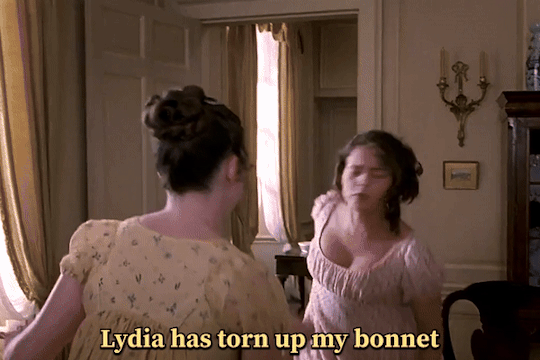
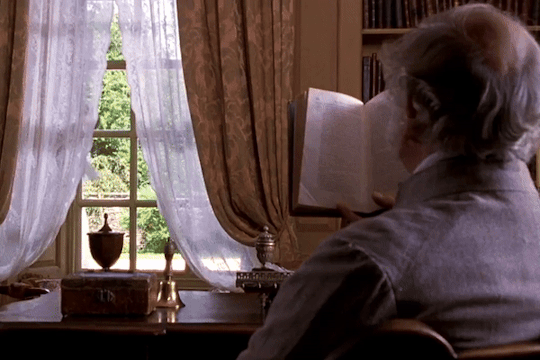


Pride & Prejudice (1995) Episode 01
#Pride & Prejudice (1995)#Episode 01#Elizabeth Bennet#Lydia Bennet#Catherine Bennet#Mr. Bennet#Jennifer Ehle#Julia Sawalha#Polly Maberly#Benjamin Whitrow
28 notes
·
View notes
Text
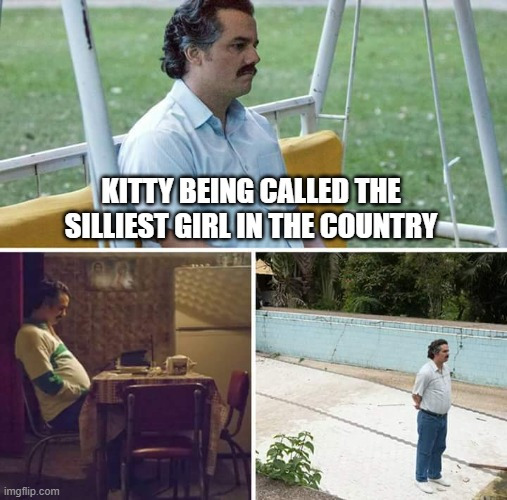
4 notes
·
View notes
Text
I'm drafting a long semi-headcanon post as I try to phrase it properly, but I'm tired right now so I'll just leave you with the conclusion:
Mr Bennet has made Elizabeth into the closest feasible approximation of the son he wanted and never had, and relates to her through that framework as much as possible. Meanwhile, Lady Catherine can't quite acknowledge that her literal daughter is a disappointment to her, and instead just openly fantasizes about a totally unrecognizable version of Anne that has never existed. Her real spiritual daughter is Darcy.
#further conclusion: gender essentialist readings of elizabeth and darcy are the WORST#anghraine babbles#anghraine's headcanons#austen blogging#mr bennet#elizabeth bennet#lady catherine de bourgh#fitzwilliam darcy#otp of otps
1K notes
·
View notes
Text


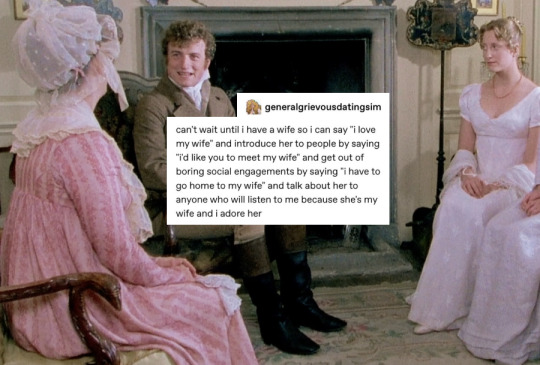


Pride and Prejudice 1995 text posts, part 4 of ? - prev set, next set
More: Persuasion 1995 text posts | Sense and Sensibility 1995 text posts | Northanger Abbey 2007 text posts | Emma. 2020 text posts
#pride and prejudice memes#pride and prejudice#jane austen memes#jane austen#english lit memes#text posts#pride and prejudice 1995#elizabeth bennet#mr darcy#mr bingley#lady catherine de bourgh#mr wickham#my stuff#pnp text posts#1k
2K notes
·
View notes
Text
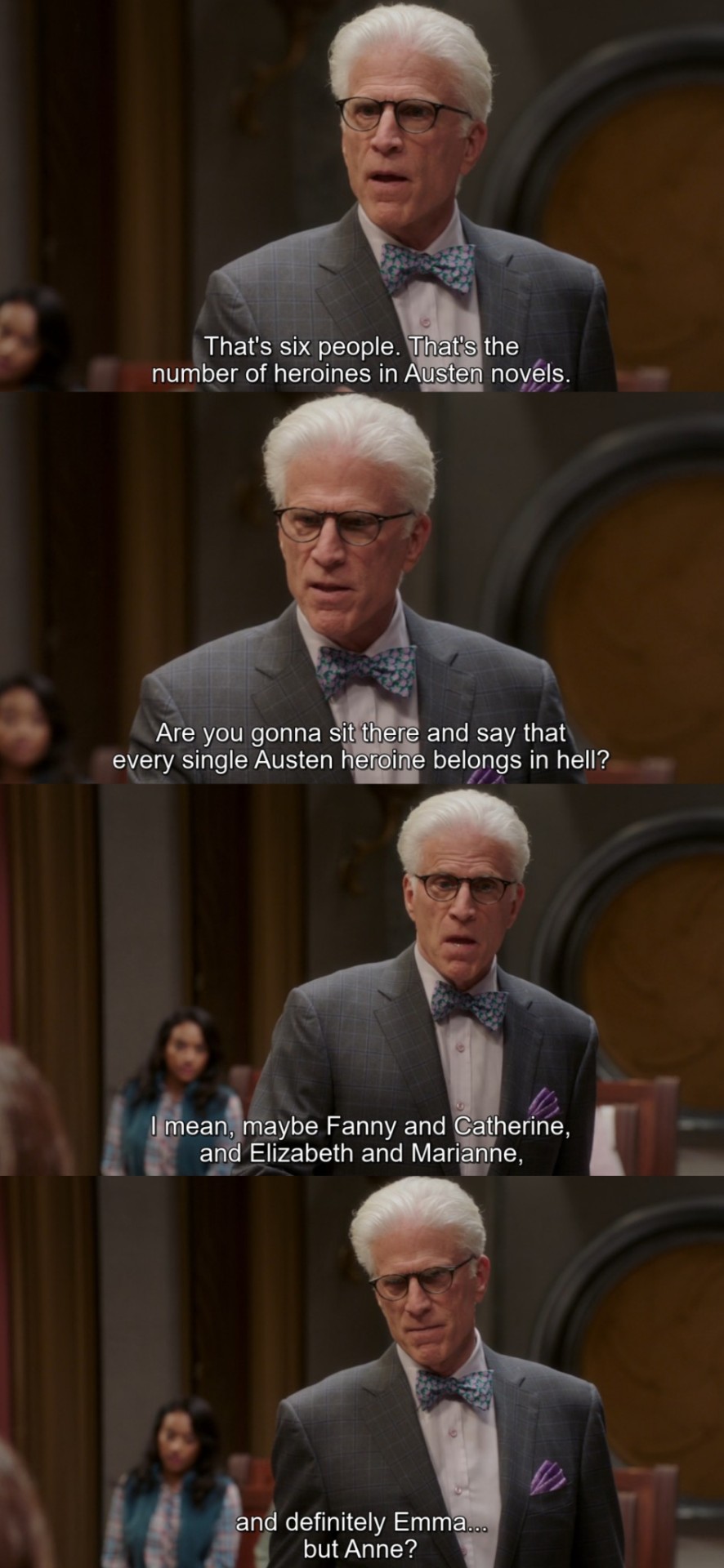
#jane austen#the good place#pride and prejudice#emma#persuasion#sense and sensibility#northanger abbey#mansfield park#anne elliot#elizabeth bennet#marianne dashwood#fanny price#catherine morland#emma woodhouse#tgp#my posts#i feel like i need to explain this 😂#this just came to me when i realized the numbers matched up#and no shade to any of the girls!! i love them all!!#but anne is definitely the best person among them in the tgp sense#(don't) notice i switched elinor for marianne bc otherwise i couldn't choose between elinor and anne 😗#also check the notes for the fanny explanation#really REALLY there's 9 austen heroines but that doesn't fit as well 🤷♀️#+ elinor susan and charlotte#not counting emma watson bc of course
2K notes
·
View notes
Text
“Elizabeth had no idea Darcy was flirting even when he was really obvious about his intentions” and “a mix of Darcy actively trying to distance himself and his attitude towards everyone he had in contempt kept Elizabeth oblivious to his intentions” are both true statements and one doesn’t invalidate the other.
#jane austen#pride and prejudice#elizabeth bennet#fitzwilliam darcy#crack but also text#if elizabeth had not been so sure that Darcy disliked her she would have had some kind of doubt#but Darcy also really tries to conceal don’t feel his way out of his crush and it’s honestly sending mixed messages#he tries to know Elizabeth better and then ignores her-Elizabeth doesn’t notice because she doesn’t care about him at the time#had it been Caroline it would have driven her crazy#and later Elizabeth IS driven crazy! like! he was so nice and all in perversely and at her house he keeps to himself!#and at Lady Catherine’s he is going all in and Elizabeth doesn’t notice because she is thinking about other things#no wonder she believes he is doing things to annoy her
164 notes
·
View notes
Text
I really want to talk about this paragraph from the Pride & Prejudice epilogue:
Lady Catherine was extremely indignant on the marriage of her nephew; and as she gave way to all the genuine frankness of her character, in her reply to the letter which announced its arrangement, she sent him language so very abusive, especially of Elizabeth, that for some time all intercourse was at an end. But at length, by Elizabeth’s persuasion, he was prevailed on to overlook the offence, and seek a reconciliation; and, after a little further resistance on the part of his aunt, her resentment gave way, either to her affection for him, or her curiosity to see how his wife conducted herself; and she condescended to wait on them at Pemberley, in spite of that pollution which its woods had received, not merely from the presence of such a mistress, but the visits of her uncle and aunt from the city.
I feel like a lot is made of women's unpaid labour in some domains (childcare, nursing the sick, cleaning etc) but we don't spend enough time talking about how maintaining social connections, with family and society, is also usually the work of women. This may be for many reasons, because it's not supposed to be work but pleasure, or because it's written off as just women gossiping, but it is work and it takes time and energy. It's also vitally important, maintaining social connections is what keeps you alive when times get tough but also what makes life worth living. These relationships will die without maintenance. The person writing letters, arranging holiday get-togethers, and smoothing over arguments is usually female.
Some readers hate this part, they want Elizabeth to Girlboss all over Lady Catherine and her snobby ways, but what does that accomplish? This is part of Mrs. Elizabeth Darcy's job, to do what she can to maintain family harmony. For better or worse, Lady Catherine is her husband's aunt, and burning a bridge is a big deal. I admire Elizabeth for putting aside her own feelings and moving towards reconciliation.
#women's work#I find this really difficult myself#my mom was such a boss at maintaining relationships#and I've got my social calendar and my kids and I'm overwhelmed#pride & prejudice#jane austen#elizabeth bennet#lady catherine#she always remembered everyone's birthdays etc.#I don't know anything unless I make a permanent event in my calendar
291 notes
·
View notes
Text
A Ranking of Jane Austen Heroines, in Ascending Order of Culpability
Fanny (Mansfield Park): Has done nothing wrong ever in her life (but would never say this as she is far too humble).
Elinor (S&S): Must have scoliosis from carrying the whole weight of the Dashwood family at the ripe old age of 19. Should probably have asked for help by now, but who's she going to ask? Her mother? Unlikely.
Anne (Persuasion): Pros: is the only functioning member of her family. Cons: took some really bad advice when she was 17.
Elizabeth (P&P): So dead-set on hating Mr. Darcy that she falls hook-line-and-sinker for the lies Wickham tells her with no questions asked. Otherwise has good sense.
Marianne (S&S): Throws herself headlong into the Romantic Experience™️ and gets her heart broken by a playboy when Colonel Brandon is literally RIGHT THERE.
Catherine (Northanger Abbey): Good-hearted, but easily led astray. So obsessed with Gothic novels that she kind of accuses Mr. Tilney's father of murdering his wife and burying her in the basement.
Emma (Emma): Tells Harriet to refuse the nice guy she likes, too prideful to see that Mr. Elton is pursuing her instead of Harriet, gossips about Jane Fairfax, feels like the rules don't apply to her, won't listen to Mr. Knightly. Is a menace.
#emma is actually my favorite lol#and then eleanor#jane austen#textpostsbymellpen#pride and prejudice#sense and sensibility#mansfield park#northanger abbey#persuasion#emma jane austen#elizabeth bennet#elinor dashwood#marianne dashwood#catherine morland#fanny price#anne elliot#convoswithmoystarushka
2K notes
·
View notes
Text




PRIDE AND PREJUDICE (1995)
dir. simon langton
#pride and prejudice 1995#pride and prejudice#jane austen#costume drama#period drama#perioddramaedit#perioddramagif#onlyperioddramas#perioddramasource#austenedit#prideandprejudice#elizabeth bennet#fitzwilliam darcy#lady catherine de bourgh#jennifer ehle#colin firth#barbara leigh hunt#my gifs#mine
149 notes
·
View notes
Text


I've just had the best afternoon EVER!! 😭
I went to the theatre to see a production of Pride and Prejudice* (*sort of) and I genuinely do not think I've laughed that hard at anything in a long time. It was absolutely hilarious.
Five women played most of the parts, although Kitty was not in it and Mrs Gardiner was just Auntie G!! But the absolute BEST swap was Mr Bennet, who was just a chair with book pages sticking up. 0 dialogue even when the girls/Mrs Bennet were screaming at him for help. I cried.
Personal highlights:
Bingley getting his hand stuck in a Pringles tube when meeting Jane
Elizabeth singing You're So Vain to Mr Darcy and swearing at both him and Mr Collins when they proposed
Smooth Operator playing when Wickham was introduced, who told Lizzy all the Darcy tea while they were smoking outside next to a bin which had 'JANE AUST-BIN' written on it
Mr Collins forcing Elizabeth to sing Lady in Red to Lady Catherine, while he went and danced before her
The actor playing Mrs Reynolds was also Darcy and delivered the accounts of his good character with extra venom, so good
The dialogue was modernised but it absolutely captured the spirit of it, while still keeping some memorable lines like Elizabeth screaming 'what are men to rocks and mountains?' when walking near Rosings and the ULTIMATE swoon-worthy Darcy line 'I cannot fix on the hour...'
Was quite a spontaneous decision to go but I'm sO glad that I did. This particular production demonstrated both how timeless the story is and how absolutely hilarious it is. 10000/10, if it's on anywhere near you, you should definitely see it!!
#pride and prejudice#jane austen#pride and prejudice sort of#i am absolutely deceased#all the actors were incredible they sang phenomenally#and lizzy was NORTHERN it makes so much sense#also scottish lady catherine and essex mrs bennet#the accents were sending me#and mrs bennet getting jane to give bingley a vienetta from a tesco bag ajsjKSJSJSK fellow brits will get that#caroline was incredible too#literally launching herself at darcy#god there was so much i'll probably remember more things and make another post but my brain is scrambled egg now sjdj it's been a long day#cora watches
92 notes
·
View notes
Note
I generally agree (that's why I think it important that Elizabeth's well-off relations are not only well-off but also supportive). I'd note that the Bennets are pretty squarely in the middle of the usual run of the gentry, so not exactly on either edge of things. Mr Bennet is a very average country squire with a comfortable income, neither on the very edge of aristocratic living, nor struggling on the bottom rungs where the distinction between 'well-off tradesman' and 'minor gentleman' would be at its blurriest.
Socially speaking, Elizabeth marrying a well-off tradesman would thus be a step down in a technical sense, but I think not really that much of one given that Mr Bennet's influence and consequence are sharply restricted, she has no dowry worth speaking of, and her family connections are already to trade. And her gentry status could lend a bit of clout to the tradesman in that scenario.
It's perhaps notable that even after Jane and Elizabeth's prestigious marriages, Austen apparently envisioned Mary and Kitty marrying in that blurry region between lesser genteel status and prosperous tradespeople rather than marrying "high". Mary marries a legal clerk who would become Meryton's attorney after her uncle Philips dies (i.e. a comfortably-off local tradesman), making her a major figure in Meryton society and nowhere else. Kitty marries a clergyman near Pemberley (i.e. a member of the genteel class with a stable income and home, and in this case a generous patron, but not truly a landowner in his own right or likely to be that wealthy).
I'd also add, though, that while I don't doubt Octavia Cox's credentials as such, I would not recommend her YouTube channel. I get that she's trying to explain complicated concepts in an accessible and reasonably compact way, but IMO she tends to drastically oversimplify those concepts to the point of borderline misrepresenting them, including in the linked video.
I think she tends to prioritize the convenience of historical sources above nuance and accuracy in discussing historical context in relationship to Austen (for instance, "aristocracy" was not defined nearly as precisely or consistently as Cox suggests here, including in Austen's own writing, this is not at all new information about either Austen or social history, she muddies the waters in her weird handling of e.g. baronets, etc). I don't think Cox's conclusion is all wrong or anything, but it feels weird to reblog without mentioning that I think her general approach in this video and others is both patronizing and somewhat misleading.
Ok, I've been thinking about this question a lot and there's not enough evidence in P&P to fully support any answer, but I wanted to hear yours: What is the Gardiners' economic status/How rich are the Gardiners?
Obviously, Mr. Gardiner is a tradesman, but I'm desperately curious to know the extent of his wealth. Does he have a similar income to Mr. Bennet but is just more frugal? Would he have been able to take in his niece(s)/sister when Mr. Bennet died? Does he have Bingley-level tradesman wealth without the massive lump sum Bingley inherited from his father? Darcy assumes that Mr. and Mrs. Gardiner are gentry - but like, Bennet gentry or Woodhouse gentry or Lucas gentry. JANE SKIMPED ON THE GARDINER INFORMATION AND NOW WE'LL NEVER KNOW. So what are your headcanons surrounding the Gardiners' wealth?
Really, the most important Gardiner headcanon that the Gardiner children are immediately charmed by Darcy and think he's like ~the coolest~
thanks queen <3
Six months later: hi!
My opinion is that the Gardiners are very well-off in terms of the usual incomes of the gentry. It's difficult to pin down an exact income range because I'm not a historian or economist, but the literary evidence is pretty suggestive IMO.
For one, Mr Bennet has no trouble believing that Mr Gardiner could have shelled out ten thousand pounds for Lydia; the problem is the struggle of repaying him, as Mr Bennet would feel morally obligated to do. The impression I get is that this would be a lot of money for Mr Gardiner to come up with, but everyone accepts that he could quickly do it, where Mr Bennet could not. And Mrs Gardiner does insist that Mr Gardiner would have paid the money if Darcy had let him, which again suggests that it was reasonably doable for him.
When Elizabeth and Jane first pass the news to Mrs Bennet and try to express the debt of gratitude they all owe Mr Gardiner, Mrs Bennet's response is a bitter remark about how if her brother had not married and had children of his own, "I and my children must have had all his money, you know; and it is the first time we have ever had anything from him except a few presents."
Aside from what this reveals about her character (especially given the remarkable understatement of "a few presents" given everything they've done for Jane and Elizabeth), I think "all his money" suggests an awareness that there would have been quite a bit to inherit if Mr Gardiner hadn't had the temerity to, uh, have children.
The summer tourism journey also doesn't seem to represent a severe expense for the Gardiners, though it would be outside the realm of possibility for some. They're not super frugal, but they're also not going to pull a Sir William Lucas and abandon the source of their income, or take an estate or something to distance themselves from trade, and end up unable to provide security for their children or any significant luxuries for their loved ones and themselves. So the Gardiners do make practical decisions like living near Mr Gardiner's warehouses and continuing his business in town.
Darcy (in Elizabeth's opinion) mistakes the Gardiners for "people of fashion" rather than gentry per se. This is interesting because Darcy originally considered the entire Meryton neighborhood, including the local gentry, as people noticeably not of fashion. This concept of people of fashion is typically more about fashionable high society than trade vs gentry IMO.
For instance, Mr Hurst is described as "a man of more fashion than fortune"—i.e. someone with high society credentials from his family, but not a lot of money, though he has enough to maintain a house in Grosvenor Street. (I think the implication is that the Hursts considered their status and Louisa Bingley's 20,000 l. from trade a fair exchange.) So likely, Darcy is not confusing the Gardiners for minor rural gentry, but even higher-status people if Elizabeth is analyzing his reaction correctly, based on their appearance, apparel, demeanor, etc.
This is definitely a time when wealthy people in trade could pass for people of fashion, but I think it would ordinarily take some doing, and though the Gardiners are stylish and relatively young, they aren't trying hard in the way that the Bingleys are. Yet Darcy, who went on a whole tangent about trade cooties during his proposal, can't even identify the Gardiners as people in trade upon meeting them—that's important.
(It's also significant, of course, that he's surprised to discover their exact connection aka that they're Mrs Bennet's relatives, which is honestly pretty fair. In any case, he evaluates Mr and Mrs Gardiner on their own considerable merits by this point.)
So again, I get the sense that the Gardiners are quite well-off people who spend their money on nice enough things that they can be mistaken for a completely different class than their own, but are not specifically aiming for that or super extravagant, either. Their habits seem rather similar to Darcy's, actually—I don't think they're anywhere near as wealthy, but they're wealthy enough that they can approach major expenditures fairly casually, as he does. But unlike Darcy, it will always be contingent on Mr Gardiner's business success and they have to plan around his work and the possibility of sudden changes in terms of his work.
I personally think that Mr Gardiner would undoubtedly have been able to take care of his sister and nieces in the worst case scenario. Six women used to a high standard of living (we know Mrs Bennet is extravagant; it's only Mr Bennet's frugality that keeps the Bennets out of debt as it is) would probably be a strain, but I don't think beyond the income level indicated, even accounting for the needs of his immediate family.
When Mrs Bennet is dramatizing herself during the Lydia disaster, she tells Mr Gardiner, "if you are not kind to us, brother, I do not know what we shall do," and he assures her of his affection for both her and her entire family. This could be seen as a sort of empty redirection that avoids promising anything, especially given that her catastrophizing fantasy scenarios are extremely unlikely, but I think that's a misread of his character.
I see his reply as a tactful assurance that, in the (improbable) event of Mr Bennet dying in a duel, his affection for her and her daughters would indeed ensure his protection of her and her daughters. There's no doubt from anyone that he's capable of doing this, though it would certainly mean a change in their style of living that Mrs Bennet would vocally resent.
So while this isn't super-specific, I hope it helped!
Normally I don't need to do this, but I would like to add a sort of credit/disclaimer: I didn't initially notice all these signs and my understanding of the Gardiners' standard of living and general circumstances was, I believe, strongly influenced by JulieW of the Life and Times board at Republic of Pemberley back in the earlyish 2000s (maybe about 2006?).
The L&T board is sadly gone (or was the last few times I checked), though ROP clings to life, but she knew a lot more about Georgian history and culture than I ever will, and these references to the Gardiners' prosperity seemed really glaring once she pointed them out.
(Her analysis of Pemberley's age, architecture, and general class significance was also really influential and I'm still really sad that I have to rely on the perfidy of memory about it.)
#youtube recommends her channel so much and i'm just like :|#beatrice otter#respuestas#austen blogging#austen fanwank#long post#mr bennet#elizabeth bennet#charlotte lucas#m gardiner#edward gardiner#anghraine's meta#mary bennet#catherine bennet#etc
237 notes
·
View notes
Text








Period Drama Appreciation 2024 Day Two: Favorite Character(s)
#perioddramaappreciation24#favorite characters#period drama#kathani sharma#kate sharma#bridgerton#simone ashley#elizabeth bennet#pride and prejudice#keira knightley#dido elizabeth belle#belle (2013)#gugu mbatha raw#israel hands#izzy hands#ofmd#our flag means death#con o'neill#tim laughlin#fellow travelers#jonathan bailey#margaret grey#my lady jane#robyn betteridge#birdy#catherine called birdy#bella ramsey#anne shirley#anne shirley cuthbert#anne with an e
161 notes
·
View notes
Text
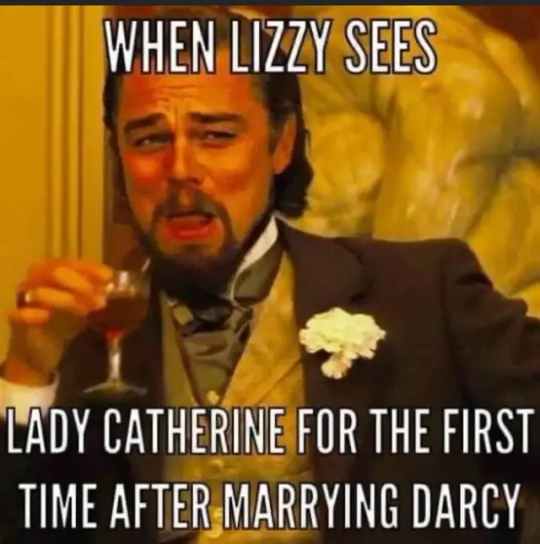
#pride and prejudice#jane austen#prideandprejudice#p&p#elizabeth bennet#janeite#pride and prejudice joke#pride and prejudice meme#lady catherine de bourgh
362 notes
·
View notes
Text
Favorite niche book genre
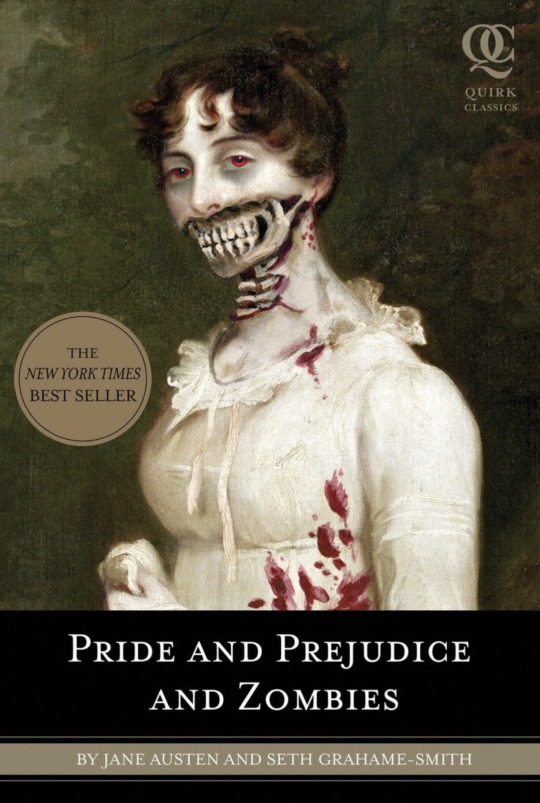
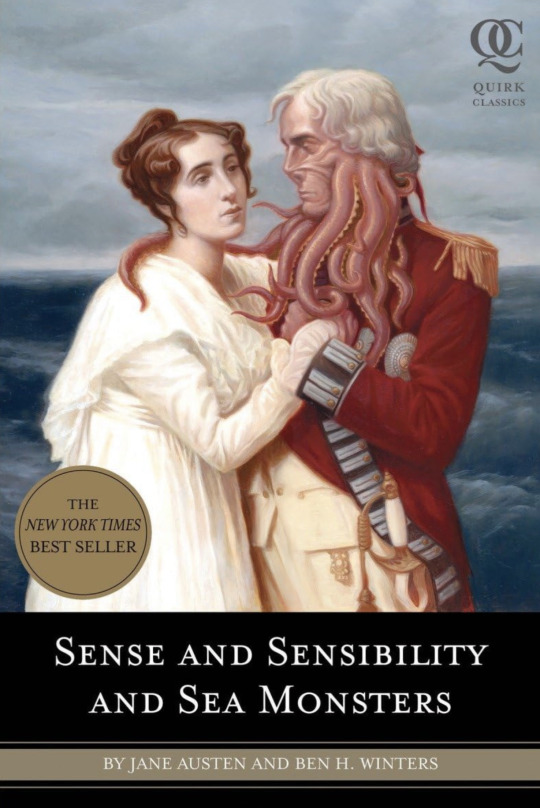
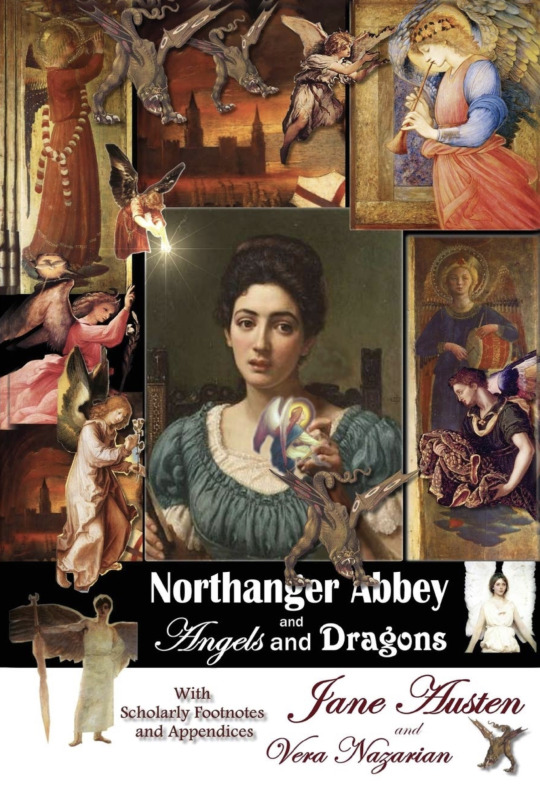
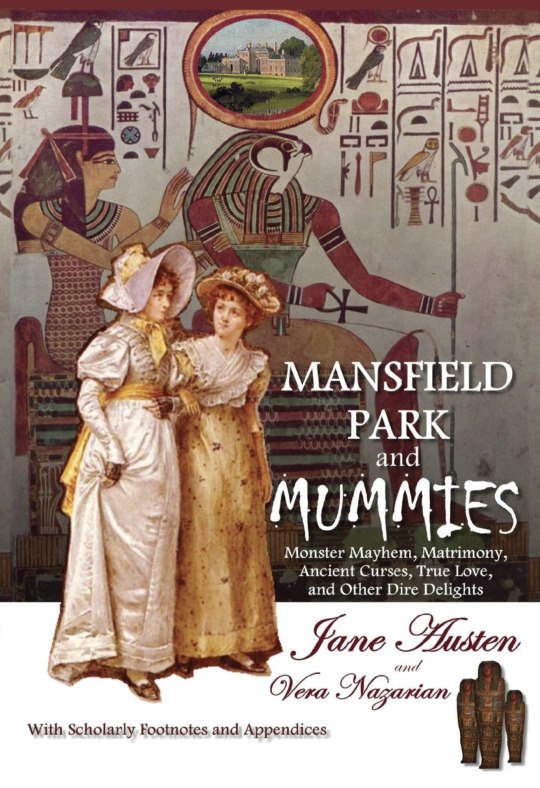
#these 4 are the ones than mainly caught my eye#but there are hundreds of Austen retellings like that#specially mixing p&p and vampires#I saw one where mr Darcy turned into a platypus#one where Elizabeth Bennet and Catherine Morland were cousins and#they found vampires or smth#one set in a post-canon p&p universe where Elizabeth fights aliens?#this is basically fanfiction it’s so fun#idk if they’re any good I haven’t read them yet I want to#jane austen#sense and sensibility#pride and prejudice#northanger abbey#mansfield park#retelling#pride and prejudice and zombies#sense and sensibility and sea monsters#Northanger abbey and angels and dragons#Mansfield Park and mummies
234 notes
·
View notes
Text
I have a confession to make.
I have never finished Pride and Prejudice.
I was IN a production of the play and I still somehow have no idea how it goes.
#pride and prejudice#i have no idea how this could have happened#like i tried to read the book to prep for the show#AND I STILL DIDNT FINISH IT#I was Lady Catherine btw#lady catherine de burgh#elizabeth bennet#mr darcy
91 notes
·
View notes
Note
Ranking Jane Austen heroines/women on how good of a mother they’d be?
As with the men, I think they would all be good mothers, though in different ways.
Elizabeth Bennet: Soccer mom, she wasn't given the opportunity to have a structured education herself, it will be different for her kids. She's hiring the best governess she can find (after Darcy does a full background check), she's encouraging her kids to do extracurriculars, they will speak six languages that she doesn't understand or else! Has a minor panic attack if she says anything that sounds even remotely like something either of her parents would say.
Jane Bennet: Gentle mom, she cannot imagine punishing her children, she just has a killer disappointed face (she is unaware of this). Encourages her children to always try to understand both sides of the story. Will eventually fall for a lie one of her children tells and be devastated when she figures out the truth.
Anne Elliot: Perfect mother, there is indeed no one so proper, so capable as Anne. She has also watched her sister do everything wrong and she knows exactly how to do it right.
Emma Woodhouse: Scatterbrained mom, makes a resolution to teach her daughter fancy work but then gets distracted and the sampler is left half finished. Promised to read with her son but they only make it halfway through the novel. Good thing she hired an excellent "Miss Taylor" to pick up the slack! And despite her occasional screw-ups, her kids love her to pieces. They just better be on guard when they hit 18 and she starts trying to marry them off.
Marianne Dashwood: Crunchy mom, or whatever the Regency period equivalent would be. She wants her kids to feel the dead leaves between their toes, she encourages them to write poetry and play moving ballads. Otherwise, a lot like her own mother (they have very similar personalities)
Elinor Dashwood: I-Say-I-Love-You-With-Food Mom, she may not be exactly emotionally available, but she orders her daughter's favourite meal when she's sad and there are tiny hearts in the stiches of her son's clothes. She makes sure her kids are provided for, educated, and healthy. When she asks if they are hungry, they know she's saying, "I love you."
Fanny Price: Nurturing mom, she will be everything for those children that Edmund and William were to her, but nothing like Sir Thomas, Lady Bertram, Mrs. Norris or her own parents. She has a good deal of experience from nursing her own siblings so it's a pretty smooth beginning.
Catherine Morland: Overconfident mom, Catherine has been there and done that, she has six younger brothers and sisters after all, she's READY! This will be easy! All you have to do is make sure the baby is fed, washed, changed, and napped... oh... it's a lot harder to do this when you have only slept for 2.5 hours last night... (I know she would have servants, but still, being a new mother is tough!)
Bonus: Jane Fairfax tries to keep Frank from spoiling the kids, but it is literally impossible. He keeps buying them huge presents and then she would be the bad guy for saying no. Also, she knows that Frank lost their child in Kensington Gardens (twice), that's why she always insists he take a footman now.
Bonus bonus: Harriet Smith has a special box where she keeps all the 'treasures' her kids collect. It is her most precious possession.
#question response#jane austen#austen moms#emma#emma woodhouse#pride and prejudice#elizabeth bennet#jane bennet#sense and sensibility#marianne dashwood#elinor dashwood#persuasion#anne elliot#northanger abbey#catherine morland#mansfield park#fanny price#jane fairfax#harriet smith
1K notes
·
View notes